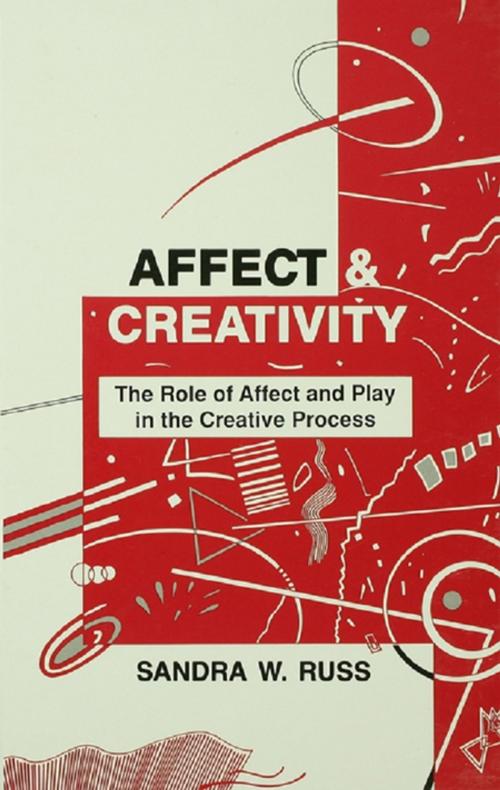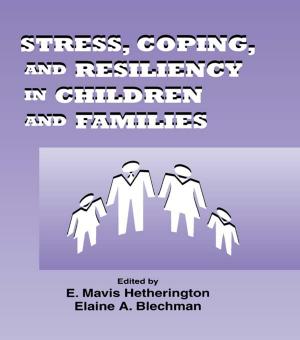Affect and Creativity
the Role of Affect and Play in the Creative Process
Nonfiction, Health & Well Being, Medical, Allied Health Services, Occupational Therapy, Psychology, Creative Ability| Author: | Sandra Walker Russ | ISBN: | 9781134765737 |
| Publisher: | Taylor and Francis | Publication: | February 1, 2013 |
| Imprint: | Routledge | Language: | English |
| Author: | Sandra Walker Russ |
| ISBN: | 9781134765737 |
| Publisher: | Taylor and Francis |
| Publication: | February 1, 2013 |
| Imprint: | Routledge |
| Language: | English |
Much work has been done on cognitive processes and creativity, but there is another half to the picture of creativity -- the affect half. This book addresses that other half by synthesizing the information that exists about affect and creativity and presenting a new model of the role of affect in the creative process. Current information comes from disparate literatures, research traditions, and theoretical approaches. There is a need in the field for a comprehensive framework for understanding and investigating the role of affect in creativity. The model presented here spells out connections between specific affective and cognitive processes important in creativity, and personality traits associated with creativity.
Identifying common findings and themes in a variety of research studies and descriptions of the creative process, this book integrates child and adult research and the classic psychoanalytic approach to creativity with contemporary social and cognitive psychology. In so doing, it addresses two major questions:
* Is affect an important part of the creative process?
* If it is, then how is affect involved in creative thinking?
In addition, Russ presents her own research program in the area of affect and creativity, and introduces The Affect in Play Scale -- a method of measuring affective expression in children's play -- which can be useful in child psychotherapy and creativity research. Current issues in the creativity area are also discussed, such as artistic versus scientific creativity, adjustment and the creative process, the role of computers in learning about creativity, gender differences in the creative process, and enhancing creativity in home, school, and work settings. Finally, Russ points to future research issues and directions, and discusses alternative research paradigms such as mood-induction methods versus children's play procedures.
Much work has been done on cognitive processes and creativity, but there is another half to the picture of creativity -- the affect half. This book addresses that other half by synthesizing the information that exists about affect and creativity and presenting a new model of the role of affect in the creative process. Current information comes from disparate literatures, research traditions, and theoretical approaches. There is a need in the field for a comprehensive framework for understanding and investigating the role of affect in creativity. The model presented here spells out connections between specific affective and cognitive processes important in creativity, and personality traits associated with creativity.
Identifying common findings and themes in a variety of research studies and descriptions of the creative process, this book integrates child and adult research and the classic psychoanalytic approach to creativity with contemporary social and cognitive psychology. In so doing, it addresses two major questions:
* Is affect an important part of the creative process?
* If it is, then how is affect involved in creative thinking?
In addition, Russ presents her own research program in the area of affect and creativity, and introduces The Affect in Play Scale -- a method of measuring affective expression in children's play -- which can be useful in child psychotherapy and creativity research. Current issues in the creativity area are also discussed, such as artistic versus scientific creativity, adjustment and the creative process, the role of computers in learning about creativity, gender differences in the creative process, and enhancing creativity in home, school, and work settings. Finally, Russ points to future research issues and directions, and discusses alternative research paradigms such as mood-induction methods versus children's play procedures.















